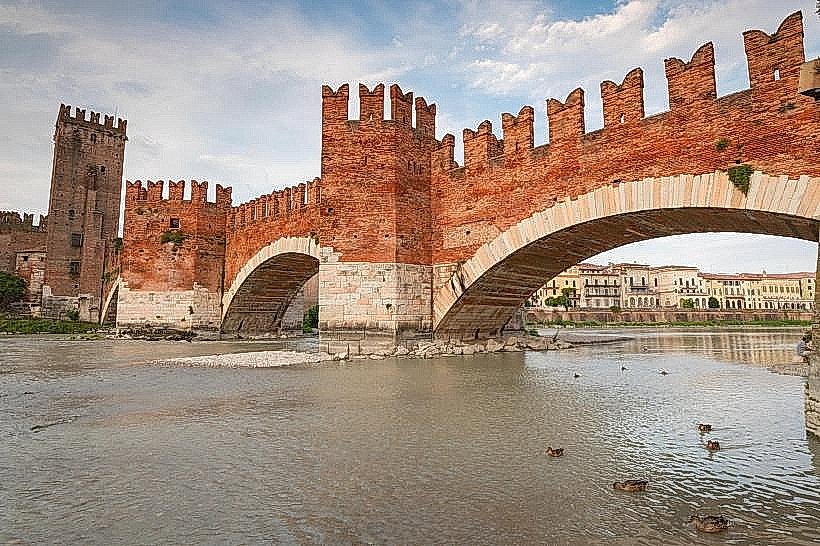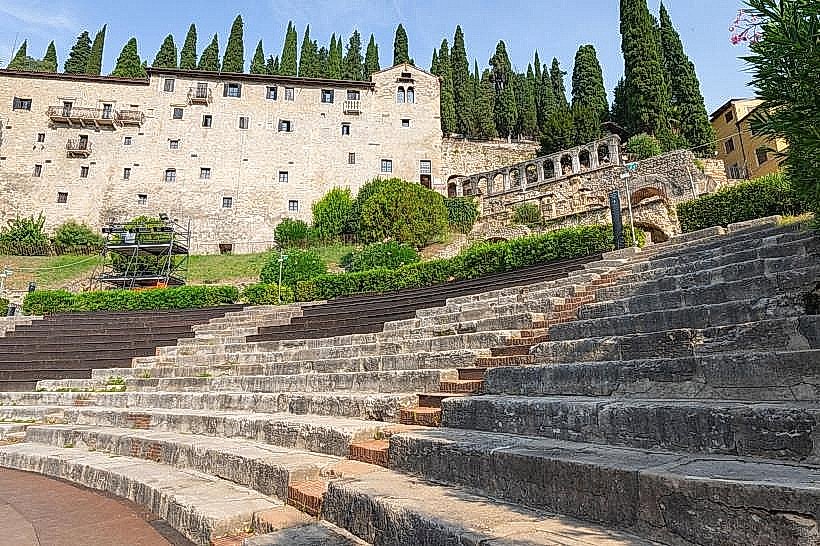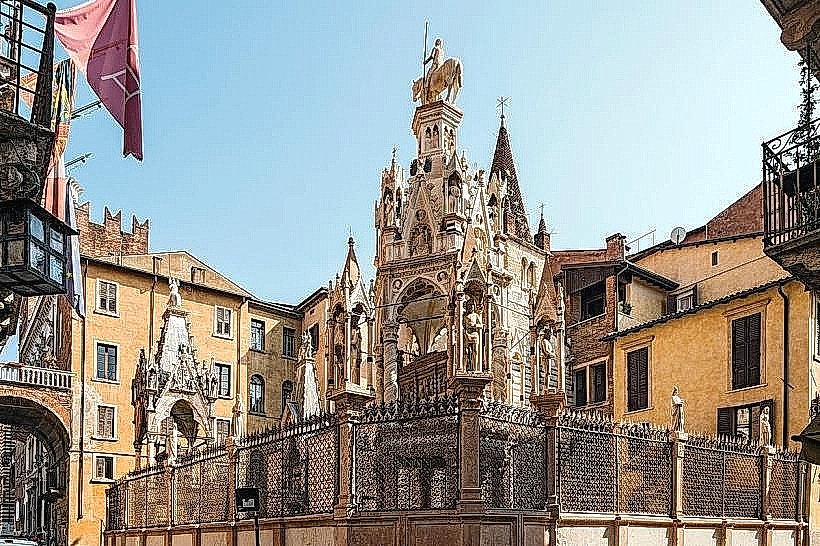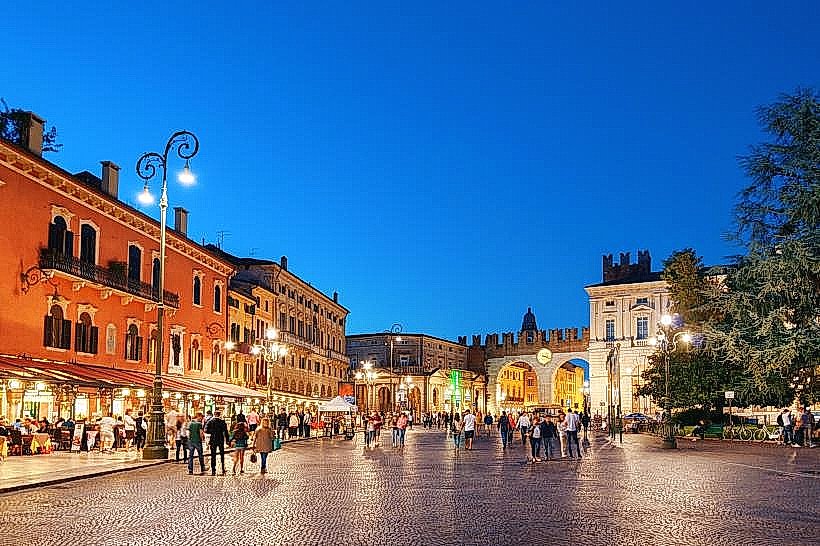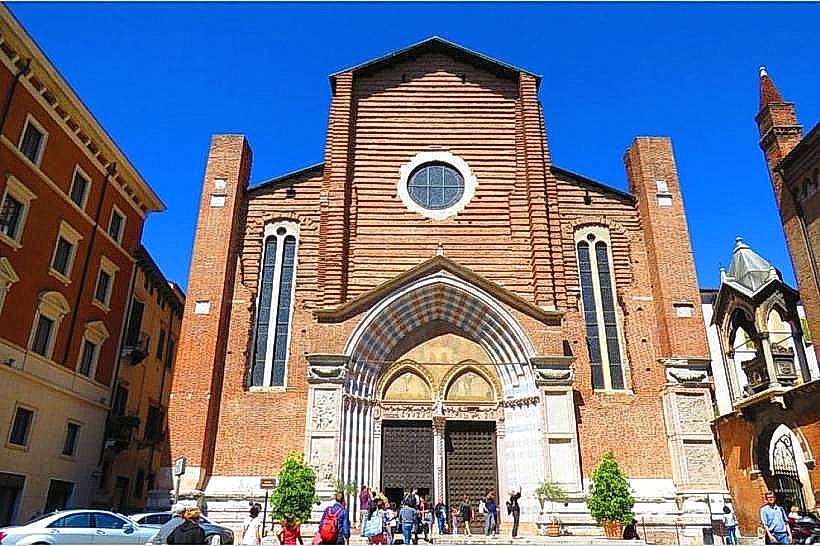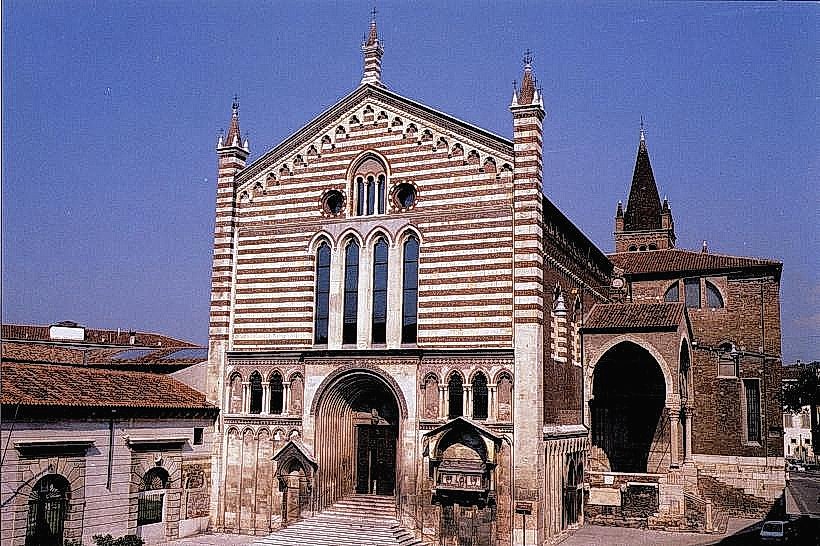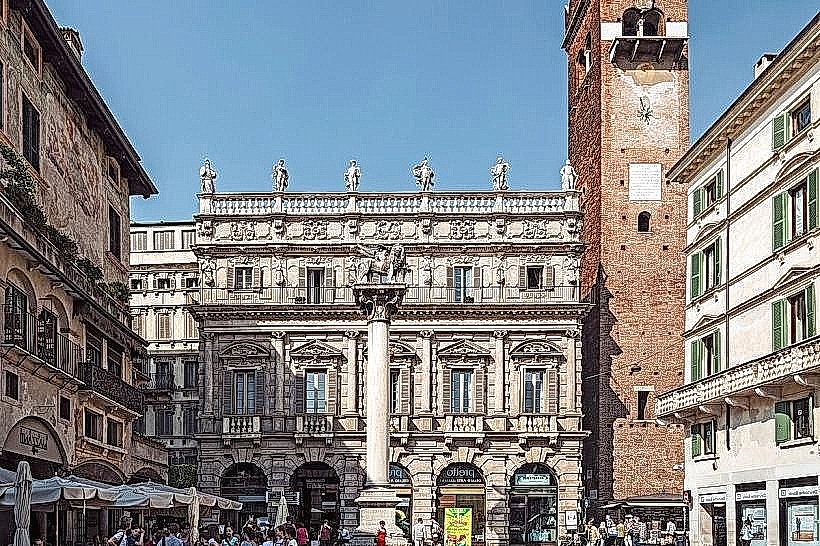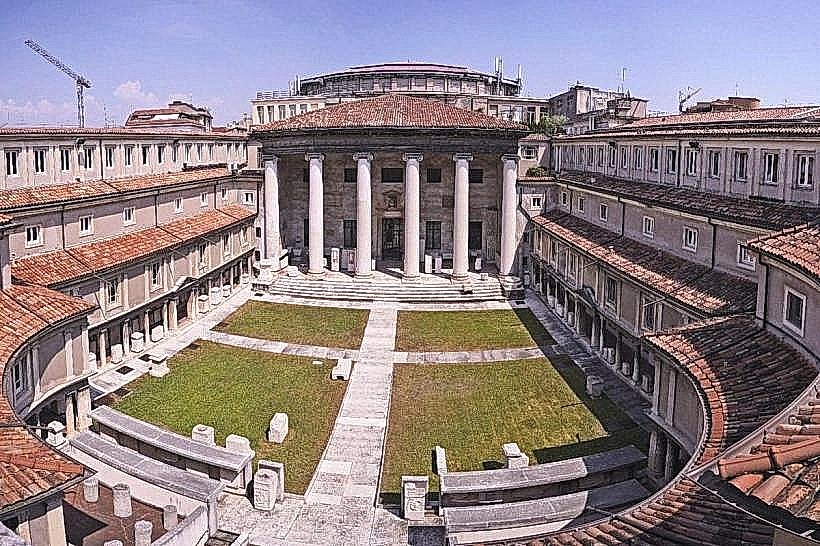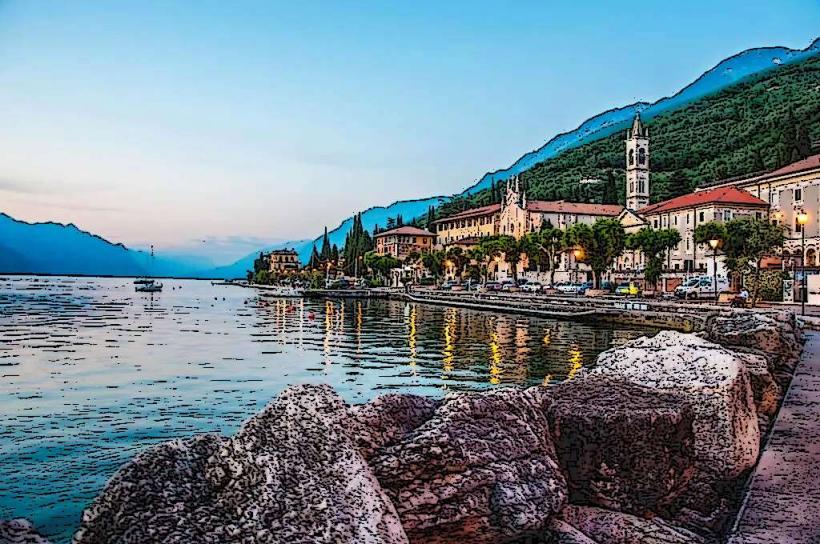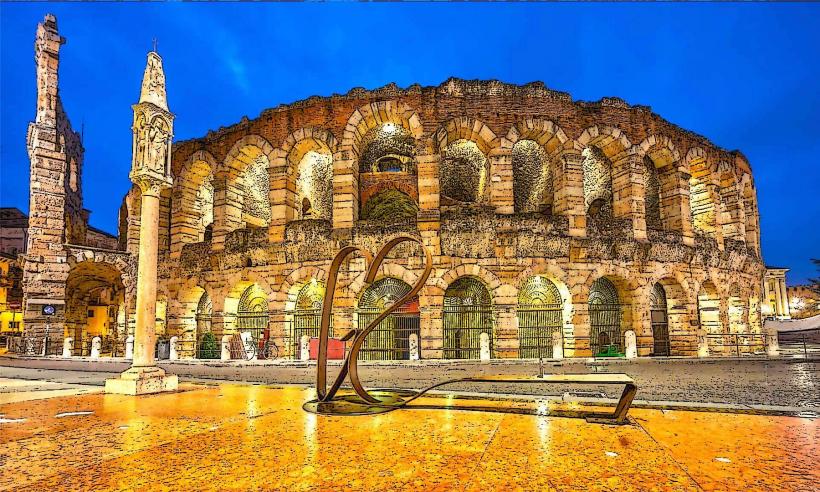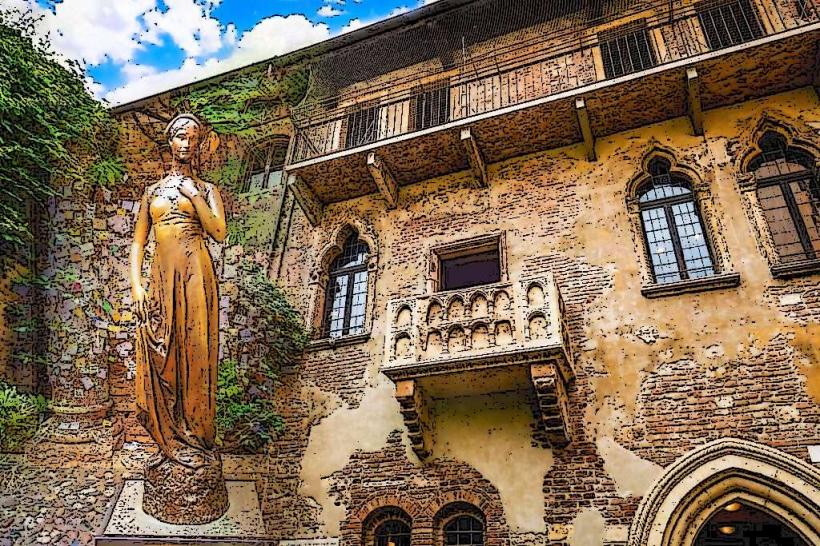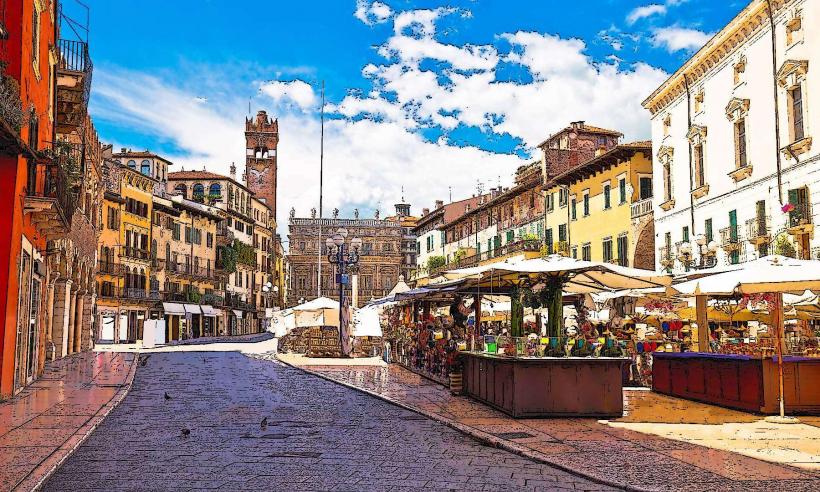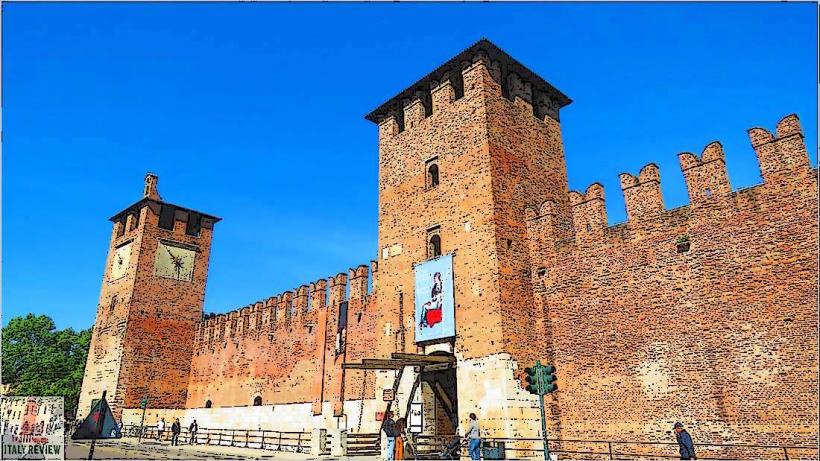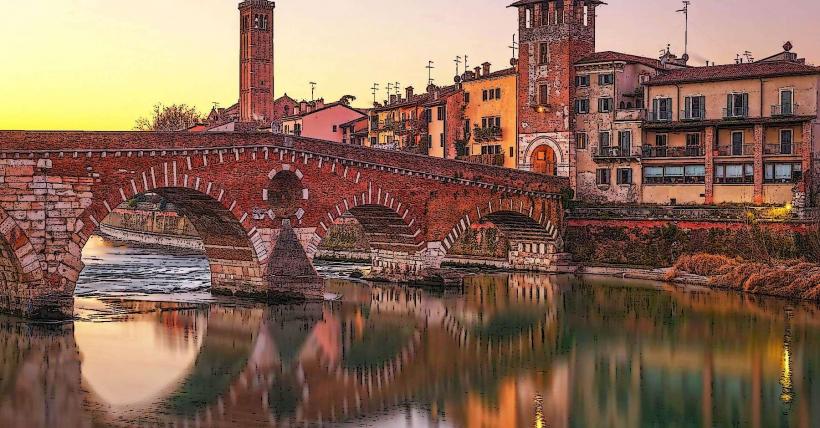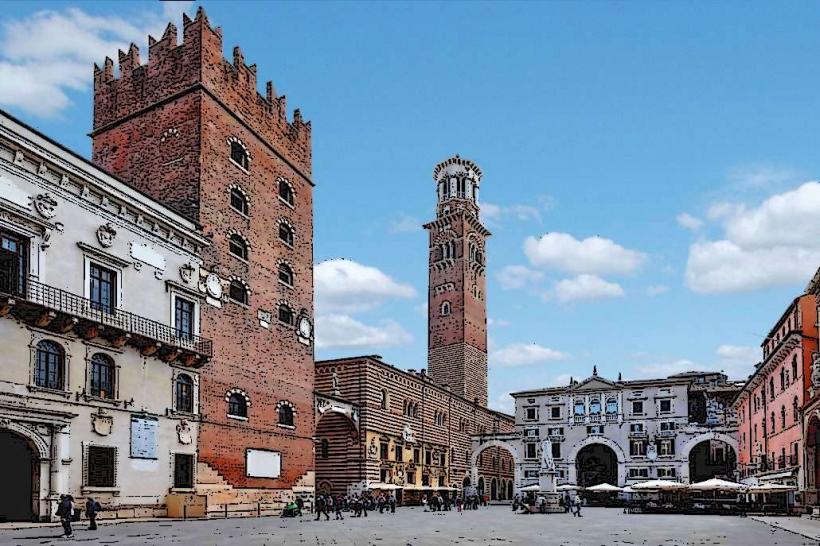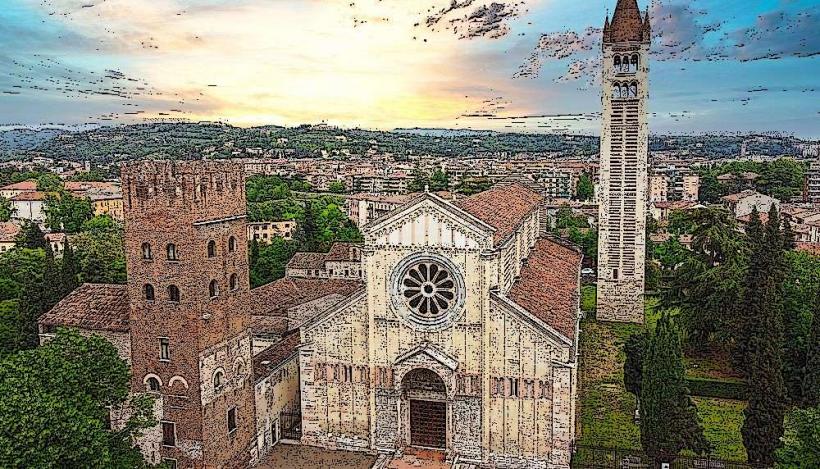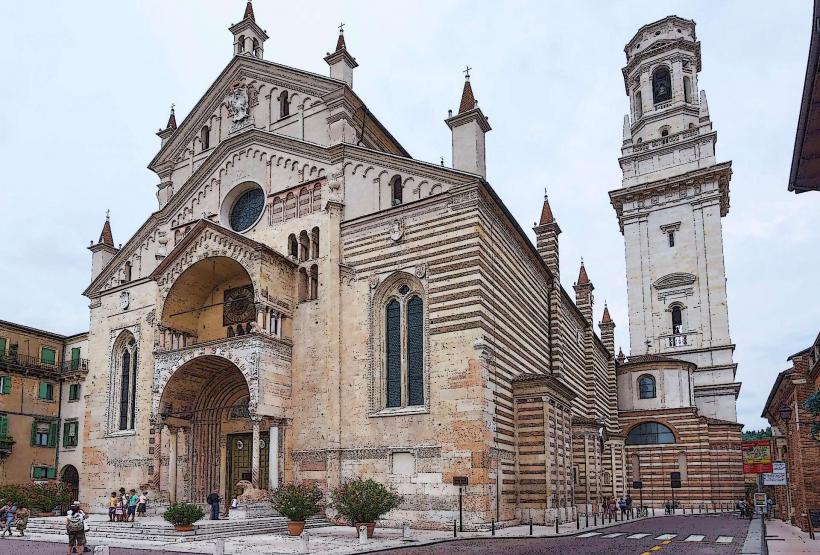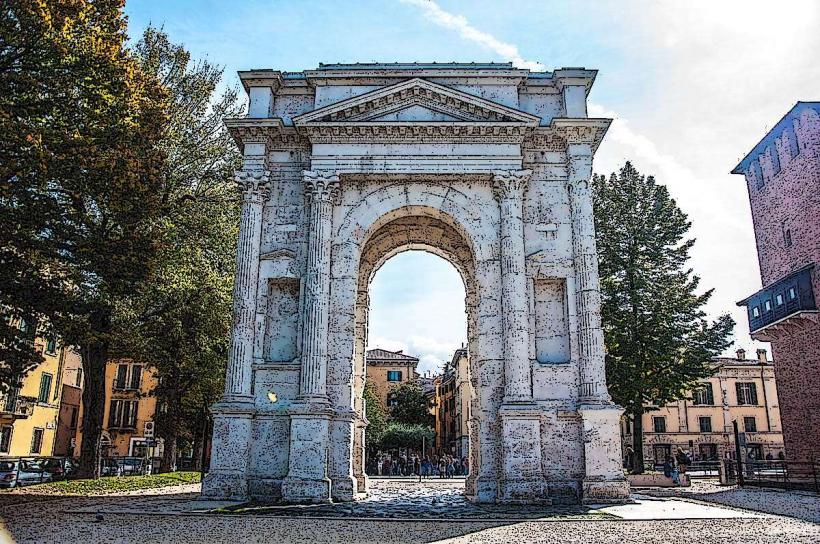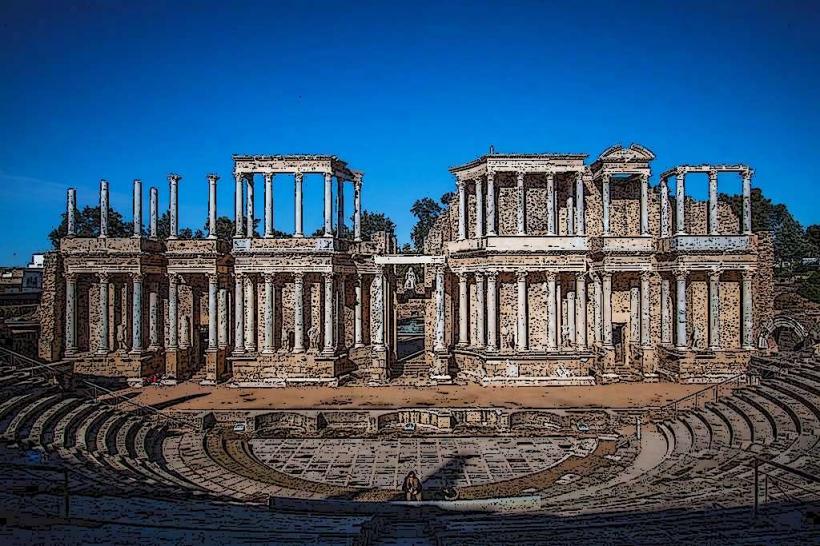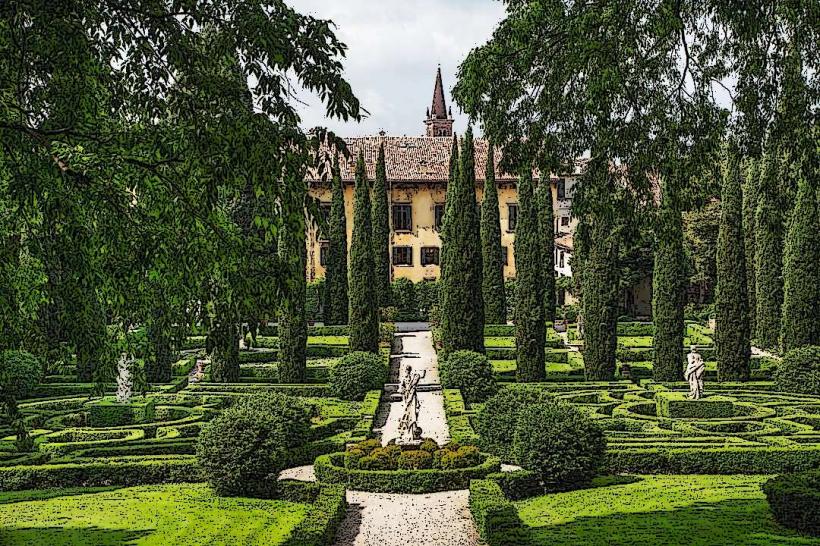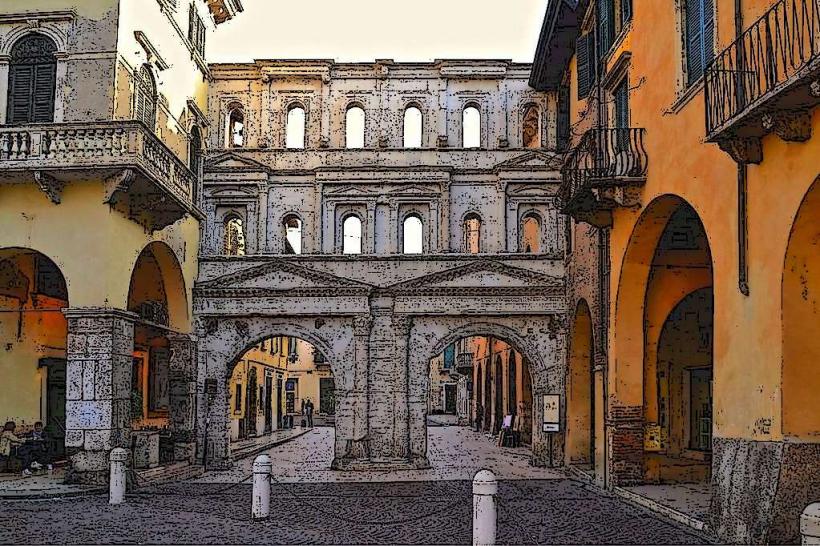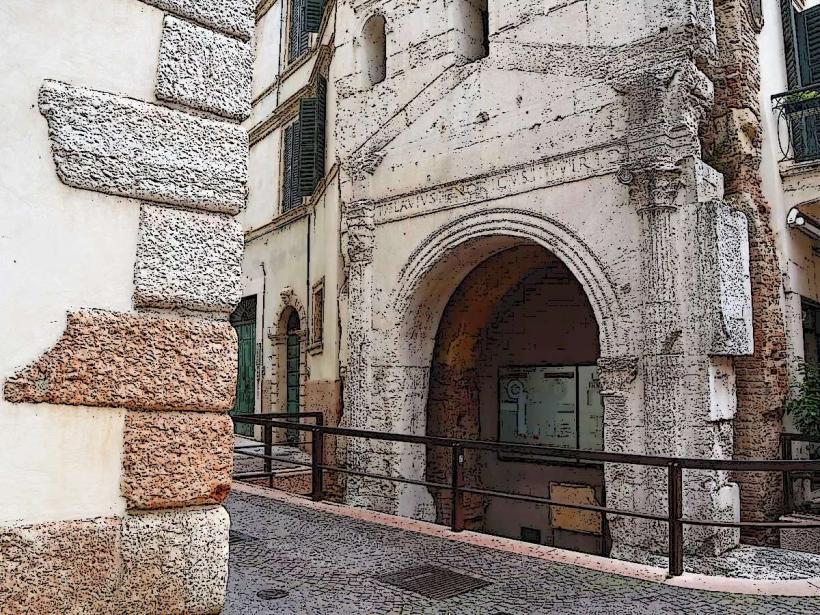Information
Landmark: Piazza dei SignoriCity: Verona
Country: Italy
Continent: Europe
Piazza dei Signori, Verona, Italy, Europe
Piazza dei Signori, often referred to as Piazza Dante due to the statue at its center, was the political and administrative heart of Verona during the Middle Ages and the Renaissance. It is located adjacent to Piazza delle Erbe but features a more aristocratic and subdued atmosphere.
Visual Characteristics
The square is an enclosed architectural complex surrounded by monumental palaces linked by arched gateways. The aesthetic is defined by red brickwork and white limestone. It features grand internal courtyards and loggias. The focal point is the 19th-century white marble statue of Dante Alighieri standing in the center.
Location & Access Logistics
Address: Piazza dei Signori, 37121 Verona.
Access: Pedestrian only. Connected to Piazza delle Erbe via the Arco della Costa.
Entry: Free public space accessible 24/7.
Logistics: The square is paved with flat stone slabs. It is generally quieter and less congested than the neighboring market square.
Historical & Urban Origin
The square developed during the rule of the Scaliger (della Scala) dynasty in the 13th and 14th centuries. It served as the seat of government, justice, and the residence of the Lords of Verona. Under the subsequent Republic of Venice, it remained the administrative hub for Venetian magistrates.
Key Highlights & Monuments
Statue of Dante: Commemorates the poet’s exile in Verona (1312–1318) as a guest of Cangrande I della Scala.
Loggia del Consiglio: A Renaissance masterpiece featuring a portico with marble columns and statues of famous ancient Romans born in Verona (such as Catullus and Pliny).
Palazzo del Podestà (Government Palace): The former residence of the Scaligeri, featuring a portal topped with the Venetian Lion.
Palazzo della Ragione (Court of Reason): The medieval courthouse. Its internal courtyard, Cortile del Mercato Vecchio, contains the Scala della Ragione, a famous red marble Gothic staircase.
Scaliger Tombs (Arche Scaligere): Located just outside the square, these are elaborate Gothic funerary monuments belonging to the della Scala family.
Infrastructure & Amenities
The square houses historic cafes and high-end restaurants. It is the primary site for Verona's annual Christmas Markets. 4G/5G signals are excellent.
Best Time to Visit
Evening: The architectural lighting emphasizes the red brick and white marble, creating a quiet, atmospheric environment.
December: To experience the traditional Nuremberg-style Christmas market.
Facts & Legends
A verified fact: Dante Alighieri dedicated the Paradiso section of the Divine Comedy to Cangrande della Scala in gratitude for the hospitality he received in the palaces surrounding this square.
Nearby Landmarks
Scaliger Tombs: 0.05km Northeast.
Lamberti Tower: 0.02km West (shared with Piazza delle Erbe).
Piazza delle Erbe: 0.05km West.
Romeo's House: 0.1km East.

